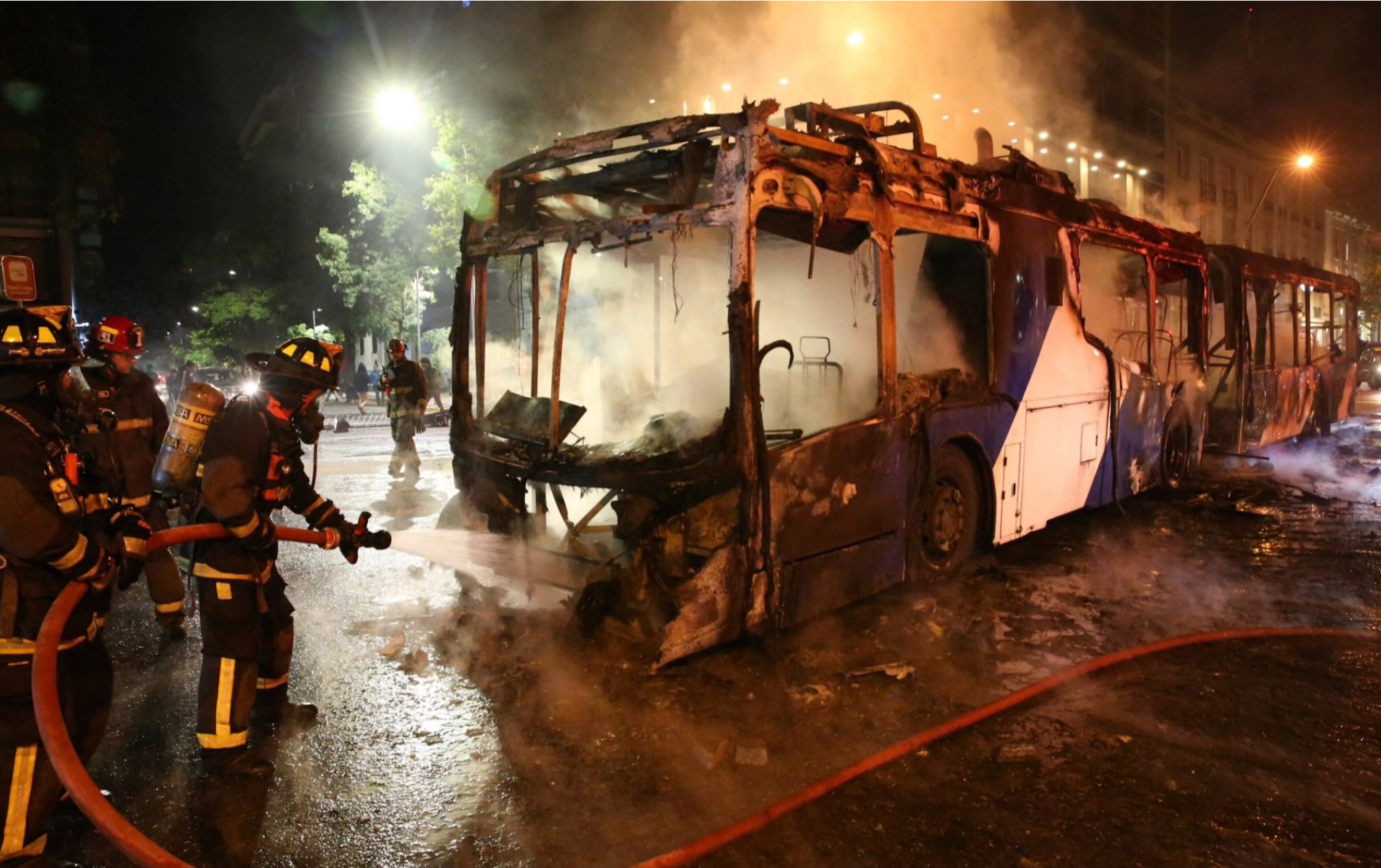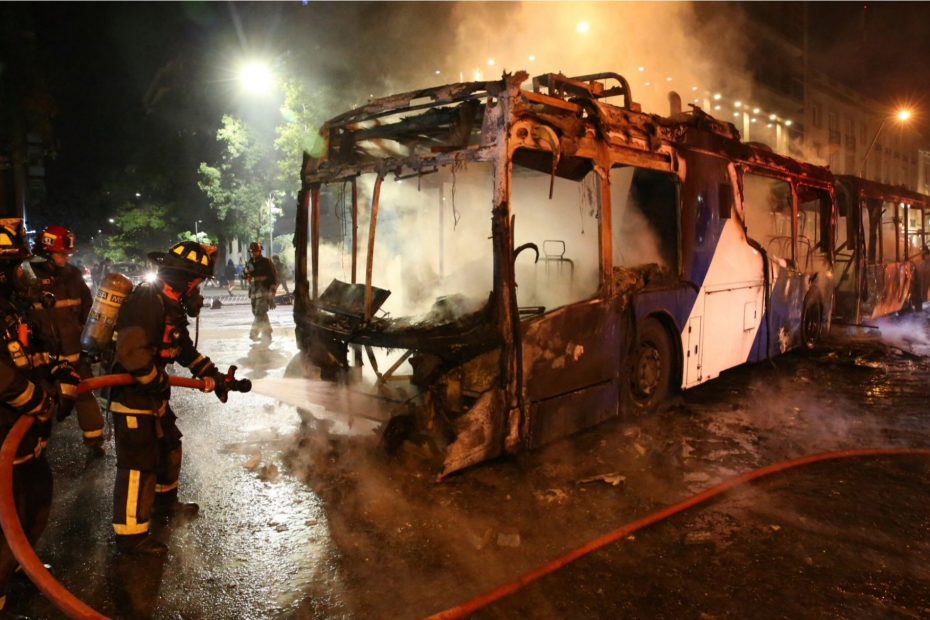In a previous analysis of the complex Venezuelan situation, I started with the proposition that a forthcoming foreign intervention in Venezuela was unavoidable. So I wrote about the risks and chances that such action might have had. Yet the months have passed, and no such intervention happened. So the question remains: what’s going on in the most failed state of south America? Are there options still opened for her suffering citizens or should they emigrate, as about 10% of them has already done? And, perhaps even more important than Venezuela herself, how her troubles inserts in the recent chain of protests in Chile, Peru and Ecuador? Are we facing a South American spring?
To start somewhere answering these questions, let it be said that around the time that I wrote my previous analysis, the shape of a foreign intervention was becoming clearer by the day. Not in the form of armies and invasions but in the form of an internationally moderated dialogue between the Venezuelan government and opposition. Yet this peaceful intervention lead nowhere. It is hard to know if the culprit is a fragmented opposition or a manipulative government that only pretends to sustain a facade of decency. In any case, the government retired her representatives from the Norwegian sponsored conversations the 10 of august, the opposition considered the talks ended the 15 september and that was that. Or it wasn’t. Yet another strategy was being advanced: by September 16 the Venezuelan government announced a pact with yet another sector of the opposition. It sounded promising: chavistas lawmakers would rejoin the parliament that they themselves abandoned in 2016, a new electoral organ would be elected to call open elections as soon as possible, and political prisoners would be freed. Yet few more details yield the full picture: The sector of the opposition that pact with the government has 8 from the 160 members of the parliament. They are a very small sector of the opposition. The announcement happened at the start of september, but no prisoner has been released, nor new elections are near being organized. Today it all look as another successful stunt of the government to further divide the opposition.
Having lived in Venezuela for more than 20 years, I can attest that her political landscape wasn’t that different than any other south American, or for what matters, worldly country. Established political parties were generally diverse, having social and christian democrats been dominant for a long while, but also coexisting with more liberal, more conservative, far left and far right small organizations. But the presidentialist system did produce a difference with the coalition driven governments that we are familiar with in The Netherlands: not only there is no tradition of coalition between political opponents, but there is a long history of division and mutual intolerance. So it is not a great surprise that, once power has been taken over by a dictator, the opposition has long term differences that make almost impossible coordinated action. It sounds ridiculous, yet it is foreseeable. Could you imagine Trump sitting with Obama in the exile to discuss common ways to dislodge a north American dictator? This fragmented landscape, indeed, is what the Venezuelan dictatorship has used, so far, with great success. The opposition has only once been united, when they had their first electoral win in 2016. Every other time they have stood divided and have been defeated by the government, both in the street and in elections. From our somewhat distant situation, there is no sight on this divisions being healed any moment soon. And, as soon as this is the reality, there is no other option for a venezuelan, than emigration.
Which bring us to the next set of concerns. Whoever has been following south American news recently, will be fully aware of the scale of the protests in Peru, the much debated elections in Bolivia and Ecuador, and the massive demonstrations in Chile, not to mention the unraveling of the peace agreement between government and guerrilla in Colombia. What is surprising of the widespread protests is their ideological diversity. They have happened against leftish, rightish and centrist governments. So, what’s going on in South America? Is the further deepening of the Venezuelan tragedy a sign, a sort of representation of the rest of the continent? Above I said that for a Venezuelan, emigration remains the only reasonable solution, and indeed, many Venezuelans have go to live in one or another south American country. Then, few days ago I read in my social media stream that to migrate from one south American country to another is like upgrading your room in the Titanic. So the answer to my question, in one word, is yes.The ongoing protest in several south American countries attest to the depth and seriousness of the crisis of the countries in the region. Crisis that are, after all, not that different than the Venezuelan crisis.
The core of the problem is that the whole region remains with huge levels of inequality. It does not matter that a particular country has alternated ideologically different governments (as in Argentina or Brasil) or has had long tenures of left wing ones (as in Venezuela or Bolivia) long periods of centrist coalitions (as in Chile) or fairly rightish intervals (as in Colombia). From the eighties onwards, when the last dictatorships were uprooted and democracy spread in south America, a whole lot of different political models have been attempted. But none of them has managed to make a relevant and sustainable reduction at the always growing inequality. In a short term both neoliberal policy, as in Chile, or socialist policy as in Brazil, has dented inequality. For periods of few years we all have read about decreasing poverty. But the harder to swallow truth is that these decreases have been outliers, blips in the more long term trend of increased poverty.
If there is anything to say about this battered continent, is that new recipes have yet to be invented and implemented, probably by social forces that we are not even aware of as yet. Would we recognize them? would that happen in the foreseeable future? Those, my kind lector, are questions for you to answer, as much as for me.

